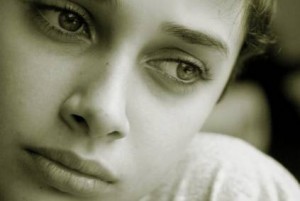Depression after miscarriage is a normal reaction to the tragic event. The loss of your child touches on the very core of your humanity – being a mother – and the overwhelming sadness can make it difficult to even get out of bed in the morning. In fact, psychologists and psychiatrists will advise against suppression of sadness in mothers-to-be who have suffered a miscarriage as the results can be harmful. Depression can of course be mild and severe so the most important thing when you suspect you are sliding into depression is to seek medical assistance as soon as possible.
Five Stages
Experts have identified five stages of grief over the loss of someone beloved including an unborn baby. It must be noted that not all individuals will undergo the order of these five stages – some will skip on a few of the steps while others will go through all the steps albeit in a different order. Also, the period of time spent on each stage differs from one individual to the next.
It is important not to compare responses, dealing with depression after miscarriage will be a different experience among all women simply because of our unique individuality. With that said, here are the generally accepted five stages of grief:
• Denial and isolation happens during the first few moments after the loss has been confirmed.
• Anger is when the grieving person lashes out at the world, at people, at God and then at one’s self for letting the miscarriage happens.
• Bargaining often happens with a higher deity – God, for instance – where the woman promises to do something in order to take away the loss.
• Depression is characterized by aversion to activity, sadness, anxiety, emptiness, and helplessness, all of which can affect physical and emotional well-being. When depression is transitory is is a normal part of the process but when it becomes a long term debilitation illness it is not part of the normal process and clinical support must be sourced.
• Acceptance is the stage where the mother-to-be has accepted the reality of the baby’s loss. The sadness, anger and mourning for your loss remains but it has tapered off considerably.
Depression and Grief
It can be difficult drawing a clear line in the sand to differentiate a mild depression after miscarriage and clinical depression. Both have similar symptoms of persistent feelings of sadness, emptiness, and hopelessness; of irritability and restlessness; of loss of interest in activities; of negative changes in patterns of sleep, appetite and concentration; and of suicidal thoughts. Indeed, depression is a normal part of the grieving process, as previously mentioned, and seeking the right medical support may be the only way to determine whether the level of depression we are experiencing needs additional assistance.

Plus, there is no set time limit for when we are supposed to finish the grieving process. But when we start to feel that your depression is getting out of control, we must seek help immediately. Clinical depression is a serious condition that requires professional intervention from professionals.
We can consult with a family therapist, a grief counselor, or a psychologist for advice. We can also look into the possibility of joining a support group we can attend. The important thing is that we are taking action to counter our depression before it takes hold of our life.
In the end, dealing with depression after miscarriage is a stage necessary to successfully achieve emotional healing. But first we must face our emotions regardless of how scary this may seem with the help of resources such as Beyond Pregnancy Loss. It is a useful book that will point the path toward acceptance and recovery.
Talk soon
Helen



